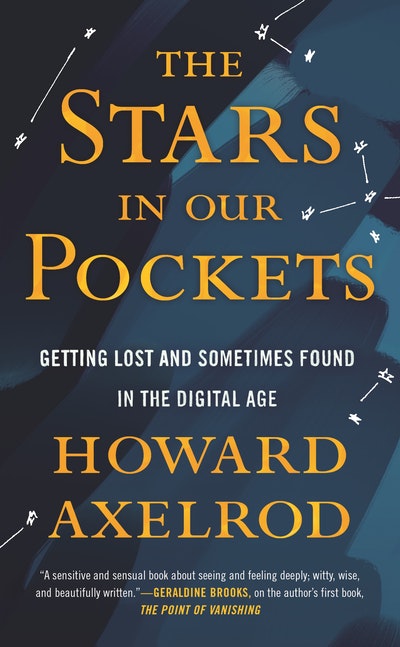“Beautiful, elegantly expressed” meditations on the ‘inner climate change’ we experience as we shift between our offline and online lives—for fans of Oliver Sacks and David Foster Wallace’s This Is Water (New York Review of Books).
What shapes our sense of place, our sense of time, and our memory? How is technology changing the way we make sense of the world and of ourselves?
Our screens offer us connection, especially now in the wake of the COVID-19 pandemic, but there are certain depths of connection our screens can’t offer—to ourselves, to the natural world, and to each other. In this personal exploration of digital life’s impact on how we see the world, Howard Axelrod marshals science, philosophy, art criticism, pop culture, and his own experience of returning from two years of living in solitude in northern Vermont.
The Stars in Our Pockets is a timely reminder of the world around us and the worlds within us—and how, as alienated as we may sometimes feel, they were made for each other.





